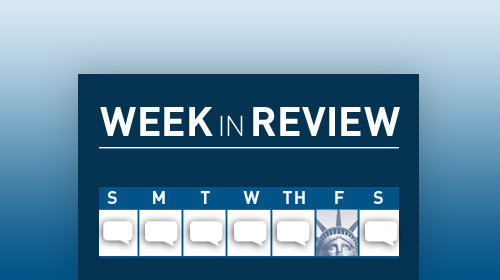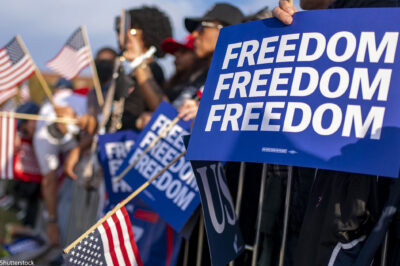
Are text messages protected by the higher privacy standards of surveillance laws that protect Internet communications (like email), or are they treated like phone calls?
How many years of litigation were required before the government agreed to pay gay and lesbian service members the same severance pay that other service members received?
For how many hours a day was Pfc. Bradley Manning isolated in a windowless cell, awaiting trial for allegedly leaking U.S. military and diplomatic documents to WikiLeaks?
Which federal court heard ACLU arguments this week on the constitutionality of warrantless blood tests?
Five years from now, what percent of law enforcement agencies will have license plate-tracking surveillance tools?
U.S. Surveillance Law May Poorly Protect New Text Message Services
Internet-based text message apps are one of the most common means of communicating today. But when it comes to this relatively new technology, surveillance law is behind the times in important ways, and as is so often the case when the law lags technology, our privacy suffers as a result.
Victory! Equal Pay for Lesbian and Gay Veterans
At long last (and after two years of ACLU litigation), many lesbian and gay former members of the military will be getting what they deserve: full severance pay regardless of their sexual orientation.
If you served six years in the military and were discharged involuntarily, Congress said you're entitled to separation pay to help ease your transition to civilian life. But the military had a policy – not required by any law – of cutting that separation pay in half if you're discharged, even honorably, for "homosexuality."
A Misguided Ruling in the WikiLeaks Case: 23 Hours a Day Alone in a Cell Is Always Solitary Confinement
For nine months, Pfc. Bradley Manning was held in a windowless cell in Quantico, Virginia, for 23 hours a day - at times with no clothing - while awaiting trial for allegedly leaking U.S. military and diplomatic documents to WikiLeaks.
This is the ACLU’s definition of solitary confinement.
And yet earlier this week, while a military court ruled that the punishment Manning endured was “excessive,” the judge insisted that he was not subject to solitary confinement because he had some limited contact with other human beings.
ACLU Lens: ACLU Tells Supreme Court Warrantless Blood Tests of DWI Suspects Not Justified
The ACLU told the U.S. Supreme Court this week that warrantless blood tests of drunken driving suspects should not be allowed, especially when a search warrant could be obtained in a timely fashion.
Report: 85% of Law Enforcement Agencies Will Have License Plate Readers within the Next Five Years
Automatic license plate readers don’t pose much of a threat to our privacy if there aren’t very many of them. Like surveillance cameras, they really only become a problem when the data points they collect are considered in the broader context of pervasive monitoring.
For example, one data point showing that your car drove past a stationary license plate reader on one highway doesn’t tell the government very much. But the data begins to pile up when there are surveillance cameras and license plate readers on every street corner and police cruiser. Absent commonsense limits, that means police and prosecutors (and anyone else with access to the database) can map your movements with the click of a button.
This is your week in civil liberties. Let us know if this is useful or if you'd like to see changes. Share your thoughts: ideas@aclu.org.
Learn more about your rights: Sign up for breaking news alerts, follow us on Twitter, and like us on Facebook.




